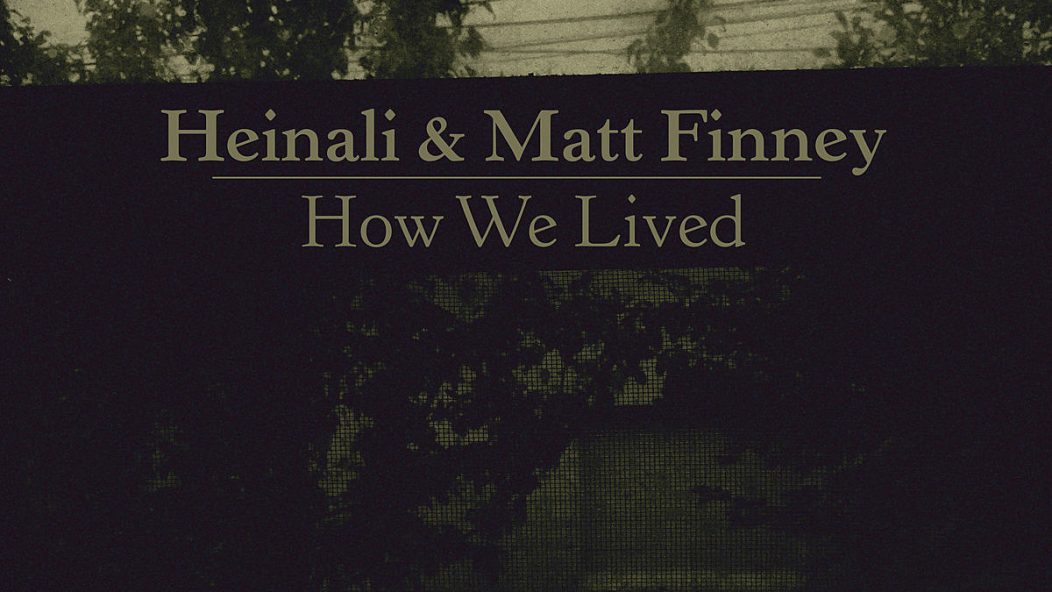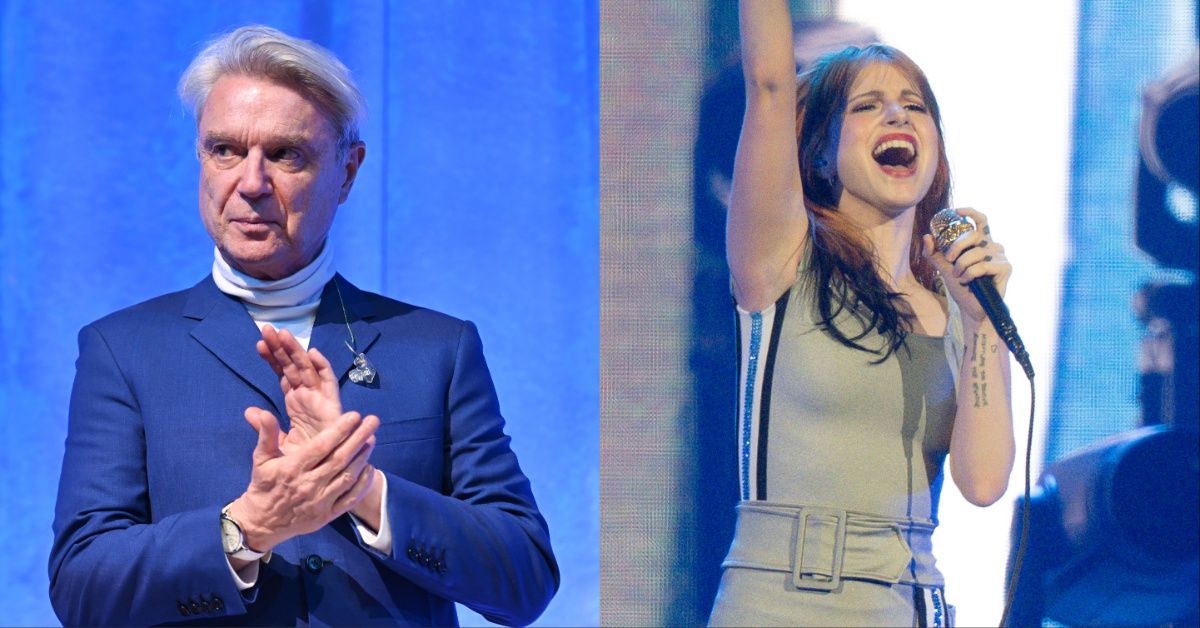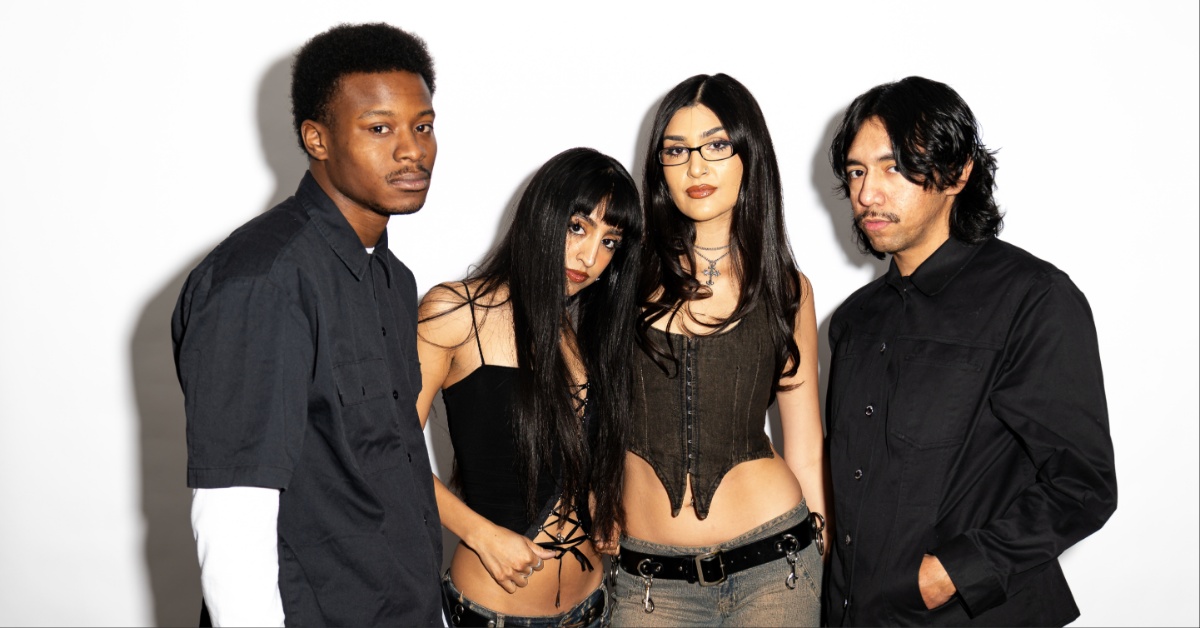
Heinali & Matt Finney - "Relationship Goals" (Premiere)

…
Heinali and Matt Finney as an artistic unit was dead. Five years gone. It sucked, watching a collaboration of such promise collapse under its own emotional weight following the loss of a label. Such a waste of potential, but not even death could keep the duo of Oleg “Heinali” Shpudeiko and Matt Finney from creating music.
It should be said that How We Lived is a different face to Heinali and Matt Finney. I suppose change comes with years of stasis, addiction, and withdrawal, and this new era moves with the sluggishness and haze of first waking up. “Relationship Goals”, across its nine minutes, echoes that stasis, rooting itself in a thick, dark drone, which slowly opens and fills itself with the warmth of life. Similarly creaking and listlessly moving is Matt Finney, whose Faulknerian prose is at its bleakest, both in substance and performance. This is the sound of betrayal, disappointment, and self-loathing, but lost in the emptiness of uncertainty. A far cry from the “doomgaze” of Ain’t No Night (2011, Paradigms), Heinali and Matt Finney have effectively shifted their focus from the “doom” half of their self-imposed tag, instead both gazing at their feet in despondency.
How We Lived will be released on The Flenser on August 11th. Read an in-depth, emotional interview with Matt Finney and listen to “Relationship Goals” below.
…
Given the tumultuous end of Heinali & Matt Finney phase one, what ultimately brought you and Oleg [Shpudeiko aka Heinali] back together?
Mostly just missing working with Heinali, really. Oleg’s become such a close friend of mine and he knows more about me than my family does. Not really speaking to him for years, giving up writing completely… I forgot how big a part of my life our project was. It’s the one thing I’m most proud of and I was dying to get back to that. I hated that I left him hanging. Scrapping out last album and all of the drama with that… I wanted to come back and make the best thing we possibly could. Kinda to show up the person that left us high and dry by not putting it out but also to kinda make everything else we’ve done look terrible by comparison. I’m just glad Oleg wanted to join me again.
I do recall the difficult situation which led to the end of Oleg’s and your work together, but I guess it never really occurred to me just how deeply it hurt you. Scrapping a whole album (the now-lost On Mercy’s Shore) comes off as reckless and emotional, especially with the amount of work which goes into it. Why abandon it entirely? Does On Mercy’s Shore exist in any vaulted form?
It felt mostly like being betrayed by a friend. That’s what hurt the most. We worked our asses off on it and to have the person that was gonna put it out just toss it away like garbage… I don’t think I’ve been that mad about anything in my life. He was someone I trusted and admired. It was the final straw on top of a lot of things during those 5-6 years. We talked about finishing it but the spark was gone completely for me. I wasn’t proud of it anymore. All I could think about was this guy leaving us out in the cold. I still get livid thinking about it. I’m not sure if Oleg has the demos that we did for it. The computer that I had everything on died a while back. I tried combing through my email archives but I think it’s lost to the world.
Being lost seems to be a wider focus on How We Lived, especially in the “voice” you used. I had gotten used to your Faulknerian depictions of the grotesque and beautiful things you had seen in the American South, but this new material is much more inward and self-loathing. I understand you went through your own period of darkness and self-destruction after being dropped from your former label – do you feel this overtly changed the way you viewed your work with Oleg? Or was it an unintentional shift you sort of “went with”?
It was a bit of both, probably. With everything that was going on I couldn’t help but focus it all on our journey. It didn’t really seem important to talk about the South or really talk politics like I occasionally did. I was hurting and coming off of drugs and I stopped drinking. I think that probably affected the way I talked. It’s a lot rougher. I talk slower now for some damn reason. Being lost is definitely the theme. Years I can’t get back that were wasted almost tearing myself apart. Our work together was always about catharsis. I think he had a lot of pent up demons and things he wanted to explore with our music as well. We kinda welded those together here and put them on display.
There is a detachment in your writing and spoken delivery. Does that sort of approach – viewing yourself from the outside – help with the coping and catharsis?
I think it does. A lot of black humor in there as well. I mean, the album opens up with a fight in a Target parking lot. It probably doesn’t sound all of that funny when you’re listening to it while Oleg’s slow brooding music is coming through but yeah. Looking at that time and approaching who I was then from a distance. Looking at everything from a distance. It helps. I’m glad I’m not who I was when I wrote these anymore.
So you’d say How We Lived could retroactively be about your own evolution since that time, as well?
Absolutely. We were both kinda obsessed with the passage of time. This album filled in the blanks. The missing years. That’s why the songs are all so long and exhausting and intense. We wanted it to feel like time rolling over people.
The more abstract approach – more droning and with an emphasis on the “-gaze” half of your self-appointed “doomgaze” tag – speaks to the “filling in the blanks” theme. Like you’re trying to figure out what happened based on hazy memories.
That’s exactly it. Everything put under this sepia toned lens.
Is there much you remember from that period of time? You were like a ghost, at least from my perspective. Completely dropped off the map.
I remember sitting in a park on my birthday when my girlfriend of 3-4 years told me that if we hadn’t lost our child she would’ve taken it and moved to North Carolina. She knew I wasn’t happy, she knew I wasn’t ready to be a father. That was my birthday present that year. I remember getting the call that my dad died. They found him 2 weeks after he died. I remember being scared as hell that I was gonna end up like him. I was already well on my way. Retreating into myself. Abusing whatever I could get my hands on.
I was living like a ghost. Living in this trailer that I couldn’t believe was still standing. I’d go to work, get drunk, get high, barely eat. Get up and repeat the whole thing over and over.
I imagine pulling yourself from that was hard, if that word could really do it justice.
I’m lucky I did. I remember my mom coming over and hugging me and sobbing. Getting her tears all over my shirt. Holding onto the person who barely looked like her son. I’ve never seen her like that. Telling me she didn’t want me to kill myself. It was a wake up call really. I’m ashamed of everything from back then.
Have you found your way back?
Slowly but surely, man. I’m making an effort!
What is next for the rejuvenating Matt Finney?
I feel better than I have in years. Getting this album finished, releasing something on The Flenser (still not quite sure this isn’t a dream or an elaborate prank from somebody), already starting work on the next album with Oleg. Just staying busy, That’s when I’m at my best. I can’t handle free time, obviously.
I’m hoping for the best for you, man. It’s good to see you active and positive again.
Thanks brother. It means a ton.
…
…
About the album:
“Heinali and Matt Finney are a transcontinental avant-garde electronic music project consisting of Ukranian composer Oleg Shpudeiko (Heinali) and Alabama-based spoken word poet Matt Finney. Their new album, How We Lived (their first for The Flenser), sees the duo return with their first release since 2011. Like their prior collaborations, Heinali provides a lush, foreboding soundtrack to Matt Finney’s bleak narrations, but How We Lived demonstrates a more considered approach. The result is four long tracks which are denser and more cogent than anything they’ve released in the past. Matt Finney provides his most intimate and harrowing words to date, evoking the type anguish and enmity that only someone who has probed the depths of despair can.
The duo first met online in 2010 and immediately began collaborating on their first EP. From there they established a prolific working relationship, recording and releasing a series of albums and EPs over the next two years. After the release of 2011’s Ain’t No Nighte, Matt Finney found himself in a bad place. A series of misfortunes, including familial illness, the death of his biological father, a miscarriage, and the failed release of their follow up album, drove him to drugs and alcohol. For the next two years he lived in a trailer as far away from society as he could get, where he languished in misery and rage. He gave up writing and human contact entirely. Eventually, his head cleared enough for him to realize how much his past work with Heinali had helped him deal with life’s seemingly endless disappointments, and he emerged from his self-imposed exile eager to feel that catharsis again. The duo reconnected and began collaborating on new material. How We Lived is the result of those missing years.”
…
Follow Heinali & Matt Finney on Facebook and Bandcamp.
…











